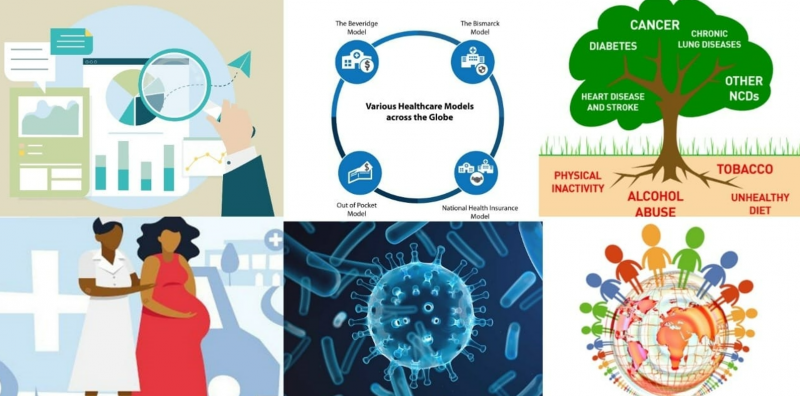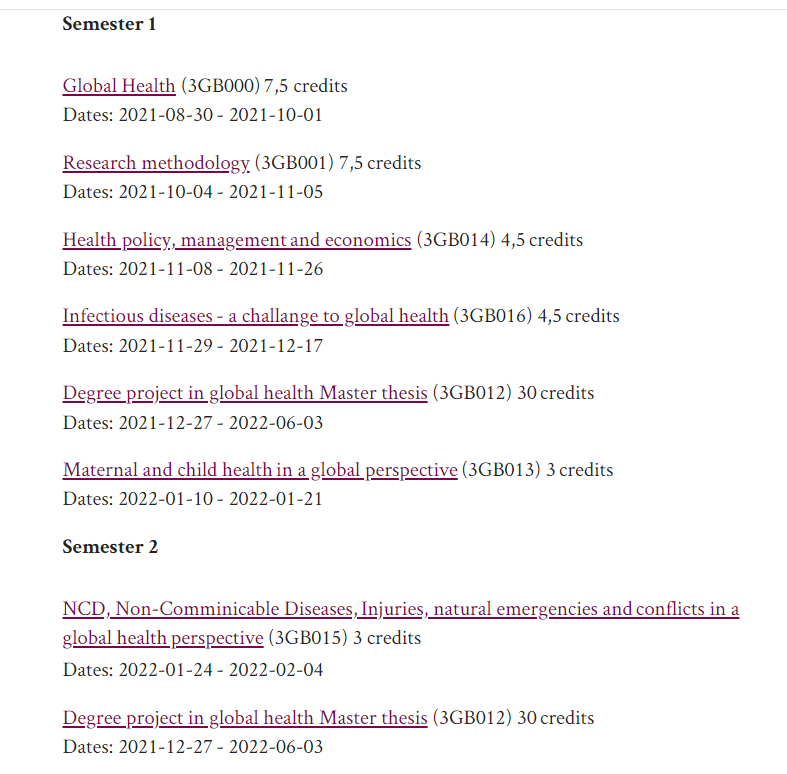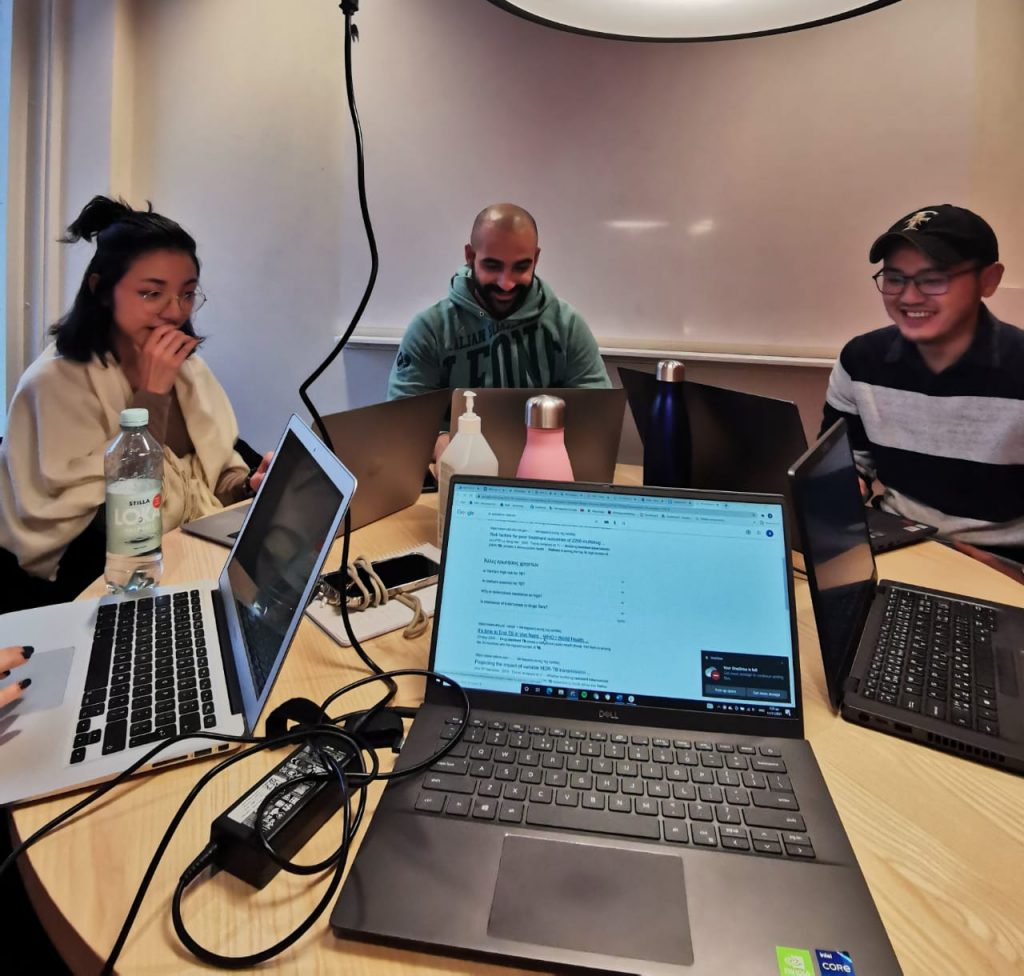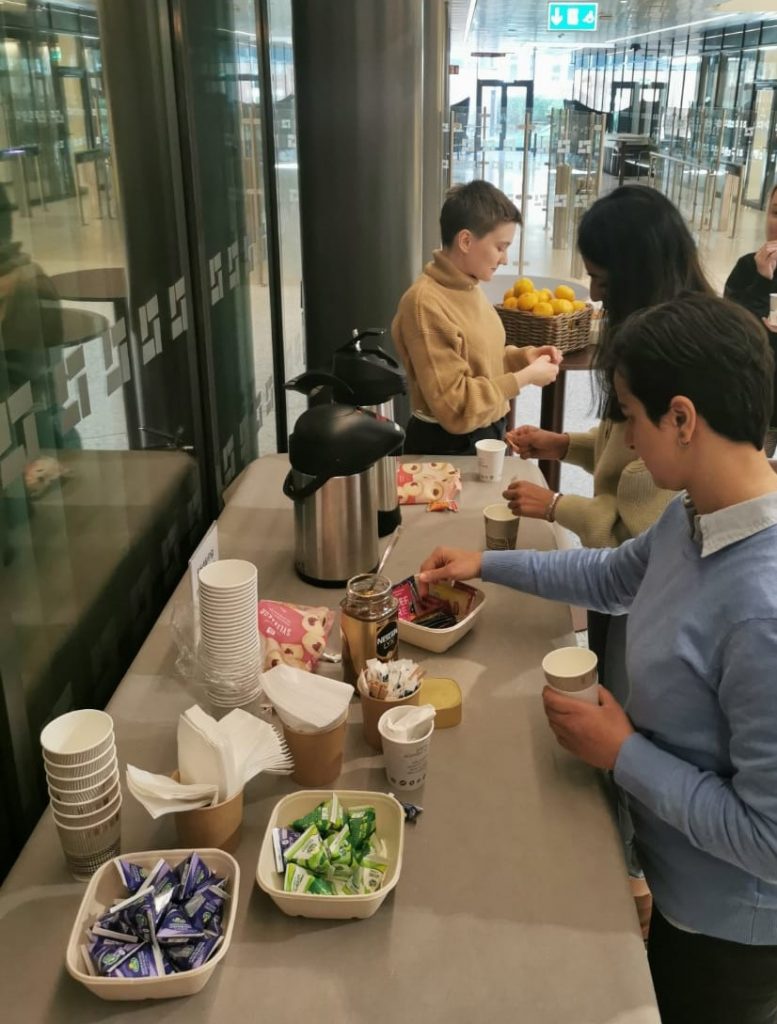
Global Health courses review – Part 1.
Hello everyone! It’s been a while but this time of the year is super busy. This month we officially finished the courses and we started working on our thesis. Hence I thought it is the right timing to write about the courses we had in this programme and the semesters so far.
Starting from the structure of the programme, as most of you already know, Global Health is a one year (60 ECTS) programme. That means that there are two semesters. The first semester includes the courses of a) Global Health, b) Research methodology, c)Health policy, management and economics, d) Infectious diseases – a challenge to global health and e) Maternal and child health in a global perspective.
The second semester is constituted from the course Non-Communicable Diseases, Injuries, natural emergencies and conflicts in a global health perspective, and the Degree Thesis Project. The thesis project course is actually divided into parts, and the first of them belongs in the First Semester.

The academic year 2021-2022. Source: Karolinska Institutet Website.
First Semester
Global Health
The first course is called Global Health and constitutes a great introduction to the concepts and theories related to Master’s the programme. Throughout these weeks we went through most of the Global Health topics.
There were many group projects during this course, both with our classmates and also with the students from the MSc in Public Health. That was an interesting experience as we had the chance to exchange ideas between us, meet each other better and foster our team working skills. This course, as the rest of the courses up to Christmas, was on campus, which was amazing and way more helpful for us to interact with each other and the teachers, compared to the online courses.
Exam: Take-home exam. We received two parts of take-home exam questions, for which we had a couple of weeks to prepare and submit.

Foreign Policy – Translated
Research methodology
The purpose of the second and longest course was to introduce us to the research methods, both qualitative and quantitative as well as to Epidemiology. Most of us found this course one of the more demanding in the whole curriculum, especially for those who didn’t have experience with research before. Except for the final exams we also had some group work assignments and presentations during the course, which added to the workload but also disrupted the monotony of maths.
Exam: Written exam in two parts. The first part included Qualitative Methods and the second one the two sections of Biostatistics and Epidemiology. This exam was challenging for some people but all’s well that ends well.
Health policy, management and economics
Through this course, we covered topics related to the health policy-making process and implementation, health systems organization, and the basics of health economics. Some of the course topics were new for me, which made the majority of lectures interesting. However, some of them were not so interactive while slightly receptive to the students’ questions, which constituted tricky our comprehensive understanding of the course.
Exam: Take-home exam. The assignments asked from the course leader required a high workload and were demanding, nevertheless, the instructions were detailed and helpful. Good management of time was needed!

Infectious diseases – a challenge to global health
This course was shorter compared to the previous three and it was the last one before the break for the Christmas holidays. Personally, I enjoyed this course. All the topics covered and the lectures were very interesting to me, and I think that most of the class had the same impression. That being said, I am not totally objective since I come from a medical background.
Exam: Online question-based written exam. An online exam usually means having less time compared to its length. So, to make it in time, you should have been fast and well prepared!
Degree Project
That’s the first part of the Degree Project course, which is divided into two parts each one in each semester. At this point, all the students had to decide on their thesis topic and submit their project proposal. It sounds like a lot of work in a short time I know, but there are projects available for everybody and a lot of research departments around to look for more. The process of choosing a project according to your interests and background was a bit tricky. However, in the end, everyone get a project, decided on their methods and managed to make and submit the proposal on time.
Maternal and child health in a global perspective
Due to the Covid19 restrictions, we had online this course and the next one. That combined with the less than two weeks duration of the course and the huge field of topics to cover, made it challenging for the course leader. Nonetheless, the topics covered were interesting and highlighted the most important of the maternal and child global health issues.
Exam: Take-home exam. This assignment even though was shorter than the previous ones was also intricate for most of the people.
Second Semester
Non-Communicable Diseases, Injuries, natural emergencies and conflicts in a global health perspective
The last of the courses also lasted two weeks and occurred online. The topics covered through the lectures were non-communicable diseases, mental health, injuries and health in disasters. Although the topics constitute a core part of Global Health and we had to go through them in a short time, I personally found most of the lectures absorbing and comprehensive.
Exam: Take-home exam.
Some of the courses also included some Fika, in order for us to have a nice break!


Well, honestly now that I went again through all the courses I realised once again how demanding the programme is and of course how many new things I have learned through this. Most of the topics were covered to the maximum possible extent compared to the duration of the programme, but I also felt that some things were hastily covered, due to the lack of time. However, this is normal when we are talking about a one-year programme.
I hope you will find this blog helpful! Keep yourselves updated for the Part 2 – Thesis Project Review. 😉
If you want to have an even more comprehensive point of view, you can also read Katie’s Blog about last year’s (class of 2020-21) courses review. 🙂
Alexandra Vaina - Global Health
Hey! My name is Alexandra, and I am a Digital Ambassador and the blogger of the MSc in Global Health at KI. I have a BSc in Nursing, and I come from Athens, in Greece where I also studied for my first master’s degree in pediatrics. While at KI, I am looking forward to gaining as much knowledge as possible in terms of Global Health, being involved in various activities, and expanding my network. Also, I would love to make new friends and travel around Sweden. In my free time, I enjoy listening to music, doing sports, spending time with my friends, and exploring new places.

0 comments